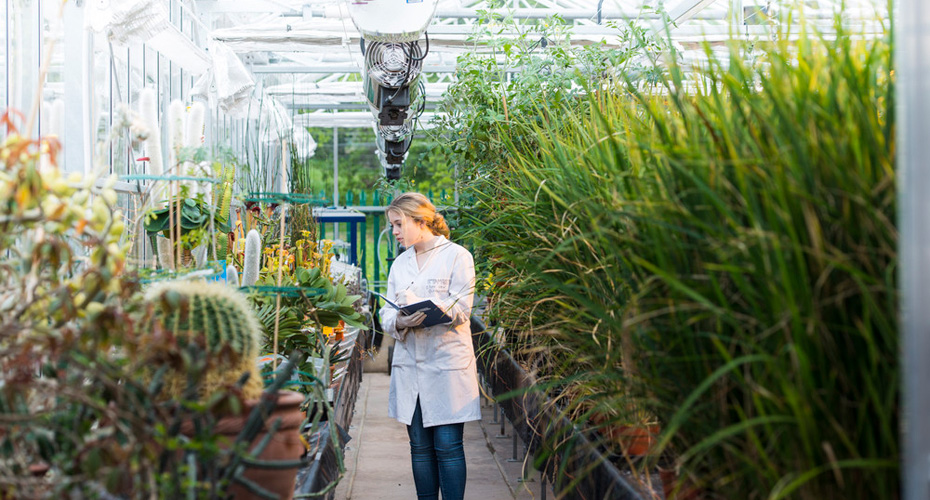China Scholarship Council and University of Exeter PhD Scholarships
中国国家留学基金委和英国埃克塞特大学合作奖学金(博士生项目)
Applications for September 2024 entry are now CLOSED.
Details below provide guidance on the studentships for 2024 entry.
Please return in Autumn 2024 when we will have more PhD projects available for studentships starting in October 2025.
The University of Exeter combines world-class research with high levels of student satisfaction at its campuses in Exeter and Cornwall, South West England. Formed in 1955, the University has around 25,000 students from 130 different countries. The University of Exeter is the UK’s fastest growing research university. We are leaders in cutting-edge science, engineering, mathematics, and medicine research, and have a world-class reputation in the humanities and social sciences.
The University of Exeter is proud to offer up to 50 full-time PhD scholarships in collaboration with the China Scholarship Council (CSC), for September 2024/25 entry.
As a Russell Group University our research makes a difference across the world. We believe in breaking down traditional barriers between academic disciplines so the bigger problems of the 21st Century can be considered from human as well as physical perspectives. We are constantly seeking new ways to engage with partners to build productive relationships that tackle some of the fundamental issues facing humankind.
Our broad research themes align to the three Faculties where expertise is often combined across the sciences, humanities and social sciences creating a culture of collaborative and interdisciplinary research. Our Research Institutes demonstrate the nature and scope of our interdisciplinary research.
Application deadline midday Friday 5 January 2024.
» About the China Scholarship Council
Exeter encourages applications across all disciplines.
There are two opportunities to apply, either with your own research proposal or through one developed by our own faculty.
- Develop your own research proposal: We strongly encourage and welcome you to submit your own research proposal (see details in the 'How to Apply' section)
- Explore the selection of existing projects listed under the links to each faculty
If you are interested in one of the projects available, please contact the relevant supervisor to discuss your interest prior to submitting an application.
To explore further, click the links below to each faculty.
The Global Systems Institute (GSI)
The Global Systems Institute (GSI) is applying Earth system science to generating networked solutions. By bringing together a truly transdisciplinary group of researchers, educators and impact generators, who span relevant parts of the sciences, mathematics, engineering, social sciences, arts and humanities, GSI seeks to understand, monitor and model complex environmental systems and scope-out sustainable futures. In partnership with the Met Office Hadley Centre, GSI is leading a team of experts in performing the central analysis for this nationally-important programme under the UK’s Climate Change Act.
The Environment and Sustainability Institute (ESI)
The Environment and Sustainability Institute (ESI) is an interdisciplinary centre leading cutting-edge research into solutions to problems of environmental change and enhancing peoples' lives by improving their relationships with the environment. The ESI’s four key research themes include Energy, materials and Resources, Biodiversity and ecosystem services, Environmental Stewardship and Citizenship, and Ecosystem Health. The ESI houses researchers with backgrounds in fields as various as Geography, Mathematics, Mining, Renewable Energy, Ecology, Microbiology, Politics, Business and Health.
The Living Systems Institute (LSI)
The Living Systems Institute (LSI) pioneers transformative science to engineer control of complex biological systems. LSI merges research in biology and medicine with ground breaking physical sciences technologies and powerful mathematical modelling capabilities, to address key challenges in fields including, though not limited to, molecular bioscience, anti-microbial resistance, neuroscience and developmental & stem cell biology. LSI is now home to 27 research teams, comprising biologists, engineers, physicists and mathematicians.
The Institute for Data Science and Artificial Intelligence (IDSAI)
Institute for Data Science and Artificial Intelligence (IDSAI) provides a hub for data-intensive science and artificial intelligence (AI) activity within the University and the wider region. IDSAI carries out basic research in advanced data analytics, from foundations and method development to wider-ranging applications with particular strengths in climate, environment, sustainability and health. As a truly interdisciplinary research institute. IDSAI is home to data scientists, mathematicians, and computer specialists across the Faculties, Research Institutes, and Departments at the University of Exeter, and works closely with industry and government, for instance with key partners such as the Alan Turing Institute.
The Medical Research Council Centre for Medical Mycology (MRC CMM)
Despite their huge burden and high rates of death, fungal infections remain understudied compared with other infectious diseases and there is a pressing need for more research in this field with more than 1.5 million deaths worldwide each year caused by fungal infections. The Medical Research Council Centre for Medical Mycology (MRC CMM) at the University of Exeter is a joint investment by the UK Medical Research Council and the University of Exeter and represents one of the most ambitious strategic investments in medical mycology worldwide and with 24 academic staff and Early Career Researchers is now the largest international hub in medical mycology research. The MRC CMM, also now designated as an Excellence Center Diamond Status 2023-2027 by the European Confederation of Medical Mycology (ECMM), focuses on facilitating pioneering cross-disciplinary research to substantially advance our understanding of life-threatening fungal infections and on training the next generation of scientists to increase research capacity in this neglected field in the UK and worldwide. These advances will impact patient lives through improved prevention, diagnosis and treatments. To strengthen its international reach, the MRC CMM has already established the CMM AFRICA Unit at the University of Cape Town (UCT) in South Africa, and is currently establishing the CMM LATAM Unit at the University of Sao Paulo (USP) in Brazil. This will be followed by a similar Unit in Asia in the next three years.
The MRC Centre’s vision is being achieved by continuing to deliver on the following objectives over the next years: 1) Research – Innovative and Interdisciplinary; 2) Training and Capacity Building; 3) Translation to Clinic and Industry; and 4) Communication – Public Engagement and Scientific Dissemination. Research areas within the MRC CMM include: the biology of fungal pathogens, bioinformatics and evolution, innate immunity, fungal pathogenesis and stress responses, host responses, diagnostics and disease prevention, translational research and the development of novel infection models, and experts in the field have identified three priorities that require urgent attention:
(i) to improve our ability to detect fungal infections, by developing robust, rapid, simple and cheaper diagnostics;
(ii) to generate better, safer and more effective antifungal drugs;
(iii) to enhance the understanding of fungal virulence and host antifungal immunity, and to exploit these discoveries to help tackle these devastating infections.
To find out more about our MRC CMM team and its wide-ranging expertise, visit our websites https://www.exeter.ac.uk/research/medicalmycology/ and https://thefungalthreat.com/, or get in touch by email at mrccmm@exeter.ac.uk.
Applications for 2024 entry are now open!
Stage 1 - Apply to the University of Exeter
Please see the following web page for details on how to apply https://www.exeter.ac.uk/study/funding/award/?id=4943
Stage 2 - Apply to the China Scholarship Council (CSC)
If successful, you will need to apply for CSC funding by following the guidelines specified by the China Scholarship Council. For further information please visit their website https://www.csc.edu.cn
Important Dates for 2024/25 applicants:
Deadline for receipt of application to the University of Exeter - midday Friday 5th January 2024
CSC applications open -To be announced
CSC applications close - To be announced
Announcement of successful scholars- June 2024
For general information about studying at the University of Exeter, you can contact International Student Recruitment - East Asia Team based in Beijing and Shanghai at the following email address: eastasia@exeter.ac.uk
The scholarships are awarded on academic merit. We encourage you to apply if you meet the following eligibility criteria:
- A citizen or permanent resident of the People’s Republic of China at the time of application and intend to return to China upon completion of your studies at the University of Exeter.
- Applicants will need to meet the entry requirments of the programme to which they are applying. Please note some programmes will require a Master's degree for entry.
As a minimum your should have obtained, or be about to obtain, a First or Upper Second-Class UK Honours degree, or the equivalent qualifications gained outside the UK. Applicants with a Lower Second-Class degree will be considered if they also have a merit or above in a UK Master’s degree from a prestigious university (Typically an average of 85% or above from a Chinese Higher Education Institution. - Meet the relevant academic requirements as well as the English language proficiency requirements for entry into a PhD programme set out by the University of Exeter. Please see our PhD degree topic pages for details. Applicants are generally expected to have a score of IELTS 6.5 – 7.0 or equivalent overall, with no less than 6.0 in any section.
Please ensure you check the requirements for your programme. - You will also be required satisfy the selection criteria set out by CSC. Details can be found China Scholarship Council's website.
- The University of Exeter Scholarship awards are available for PhD students, starting in September 2024. Current first year PhD students may apply (provided they are eligible in accordance with CSC scheme rules). Please note priority may be given to new applicants.
If successful, the relevant Faculty within the University of Exeter will fully fund your tuition fees. Dependent on your eligibility, the China Scholarship Council will provide a living allowance, including the cost of a return flight from China to the UK, accommodation and subsistence.
Qi Wang

My name is Qi Wang. I started my PhD journey at the University of Exeter in October 2010, after receiving the M.Phil in the Department of Environmental Science and Engineering of Tsinghua University. My life changing decision was made during a study visit to the Centre for Water Systems (CWS) at the University of Exeter during the Spring Festival of 2010.
During that visit to Exeter, I met the Director and Co-founder of CWS, Prof. Dragan Savić, and had a chance to share my research work with the people in CWS. It was fascinating to see the various projects dealing with the severe water issues (e.g., urban flooding and water leakage) in the real-world using smart ideas and cutting-edge technologies. I was able to talk to many PhD students about their programmes and research topics and was excited by their knowledge and the effective solutions they were bringing to solve difficult problems. Weekly seminars given by speakers from outside the university shared innovations from both academia and industry and facilitated potential future collaborations.
There was no doubt that the free academic atmosphere, genuine colleagueship, efficient administrative management, as well as the comfortable working environment encouraged me to continue the research career right there.
When I returned to Tsinghua University, I started to apply for the scholarship provided by the College of Engineering, Mathematics, and Physical Sciences (CEMPS) while at the same time preparing my application to China Scholarship Council (CSC) for the maintenance bursary. With the support of Prof. Dragan Savić and my postgraduate supervisor, Prof. Shuming Liu, I was successful in securing both awards.
My four-year research topic has been in the challenging interdisciplinary field of water engineering and computer science. My findings have resulted in several publications in both conference proceedings and journals. In addition, I took part in training sessions designed specifically to support postgraduate students and these helped me to improve the way I worked and helped me get the most out of my PhD life.
Alongside these academic achievements, I have benefitted from the reputation of the CWS and Exeter and I have secured an Associate Professor position in the School of Civil and Transportation Engineering at the Guangdong University of Technology, which I believe has significantly accelerated my academic career.
I really appreciate the life lived in Exeter, including the people in CWS as well as many local residents. I do recommend talented Chinese students to study in Exeter, and I swear it will further cultivate your value, broaden your global vision and eventually enhance your core competitiveness.
Yawei Han

My name is Yawei Han. I began my PhD study in the History Department, University of Exeter in September 2016 and am fully funded by a CSC scholarship (tuition fee and living costs). My research interest is in Modern British history, especially the ideas of the famous British socialists, Sidney and Beatrice Webb, and their influence on welfare state policy in the post-war period.
The History Department at the University of Exeter enjoys an excellent reputation, and has close connections with Chinese history research community. I was attracted by its outstanding research and it has exceeded my expectations since I started to study here. I am impressed by the academic atmosphere and the devotion and enthusiasm of the staff and PhD students.
There are many academic activities in the department which cover a wide range of areas of history research. The regular meetings with the supervision team benefit me in many aspects, and they are always exciting and inspiring.
The department and the College of Humanities have established a solid academic community among the PhD students. The annual research conference offers opportunities for postgraduates to prepare for an academic career. On the wider University level, many programmes are held to help me adapt to the new environment. The support at all levels helps develop my abilities, both academic and non-academic.
I am grateful to the China Scholarship Council (CSC), without whose support, my life will be totally different.
WU Chao

WU Chao is a PhD student of Centre for Earth System Science (CESS) of Tsinghua University since 2014. Funded by CSC and Exeter, he started the one year joint PhD programme in the College of Life and Environmental Sciences (CLES) of the University of Exeter in September 2016. His research interests include large scale wildfires, permafrost and vegetation dynamics modelling induced by climate change.
Ranked 3rd for research power in Geography and Environmental Studies and 4th in the UK for research in Earth Systems and Environmental Sciences, Exeter has world leading research capacity in climate change and earth system sciences. Many of Exeter’s professors enjoy world renowned reputations in these fields.
PhD students here interact with professors closely not only in their research groups but in day to day life. Each week there is ‘cake time’ for staff and students, regular group meetings, academic seminars and a range of other activities that enhance the communication between students and faculty and support students’ research skills.
WU Chao believes that his PhD study at the University of Exeter has given him access to world leading research which will significantly improve his research capacity in his chosen fields, broaden his research horizons and expand his professional networks for the future.
WU Chao also enjoys living in Exeter because of the charming campus, safe neighbourhood and beautiful countryside and surroundings in the South-West of England..
For general information you can contact International Student Recruitment - East Asia Team based in Beijing and Shanghai at the following email address: eastasia@exeter.ac.uk
If you have any questions about Postgraduate Research at the University of Exeter, please contact us: www.exeter.ac.uk/enquiry
The University of Exeter Doctoral College brings together institution-wide support, training, and administration for all of our postgraduate and early career researchers. The Doctoral College works across all three Faculties within the University as well as key Professional Services, to ensure that postgraduate and early career researchers have an outstanding start to their research careers.
Find out more.






